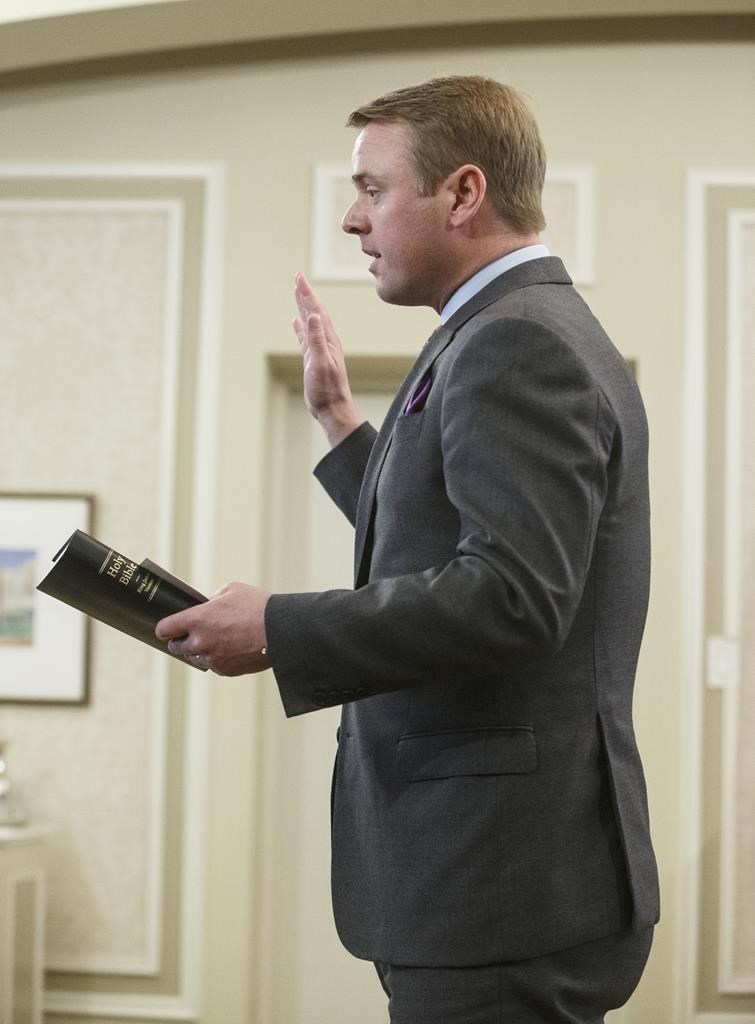EDMONTON — Early returns on fee changes aimed at preventing rural doctors in Alberta from withdrawing some services show some physicians ready to continue their work while others are turning thumbs-down.
Ten family doctors have announced they will keep delivering care and babies in the Lac La Biche hospital given the changes announced last week by Health Minister Tyler Shandro.
"Due to the recent amendments and changes by the government … we can continue to provide uninterrupted medical care," says a Facebook post from the doctors at the Associated Medical Clinic.
But nine doctors from the Associate Clinic in Pincher Creek say they are moving ahead with a plan to withdraw hospital services in 90 days — which they feel is enough time to get patients through the COVID-19 crisis.
Samantha Myhr was one of seven doctors who gave notice last week that they would stop practising at the Pincher Creek Health Centre.
Myhr said Shandro's announcement tipped the balance for her two remaining colleagues, who were trying to decide whether to still work at the hospital.
"Friday's (announcement) has united us," Myhr said in an interview Tuesday. All, she said, are going to withdraw.
She said the issue is not the benefits, but rather the lack of trust in a government that she said has given itself doctors no meaningful say and no cost certainty.
Shandro rolled back changes he imposed in March that resulted in doctors from numerous rural areas announcing that they would no longer be working in emergency rooms or delivering babies.
He announced the he will once again allow doctors to charge for overhead while working in government-run facilities. He also ditched a plan to reduce the provincial contribution to doctors' medical liability plans.
Myhr is one of the leaders of the Rural Sustainability Group, which has been surveying rural doctors and trying to draw attention to the fee changes.
Last week, prior to Shandro's announcement, the group released survey results from about 300 rural physicians that suggested 44 Alberta communities would be directly affected by doctor departures.
Myhr said the group has been talking to and hearing from those doctors since Friday's announcement and the majority are skeptical.
"It looks like (Shandro's announcement) has changed a couple of minds in terms of being able to stay working in a hospital in July," said Myhr.
"(But) the overwhelming summary is: 'We're tired and we just don't buy it.'"
The disagreement with doctors stretches back to late last year when Premier Jason Kenney's United Conservative government passed legislation giving it the power to unilaterally end a negotiated master agreement with the Alberta Medical Association, which represents doctors.
Earlier this year, Shandro did just that, while simultaneously bringing in the fee changes he has now reversed. Shandro went ahead with the changes despite public warnings from the AMA that the new rules would jeopardize the viability of family practices, particularly rural ones.
Shandro said last week that the results of the changes to overhead billing were unforeseen. He accused the AMA of spreading misinformation on the medical liability insurance.
Dr. Christine Molnar, head of the medical association, responded in an interview.
"That (accusation) is not true at all," said Molnar, who added: "It (the rural crisis) should never have happened in the first place.
"Putting a Band-Aid on an injury they created is not good governance."
This report by The Canadian Press was first published April 28, 2020
Dean Bennett, The Canadian Press


